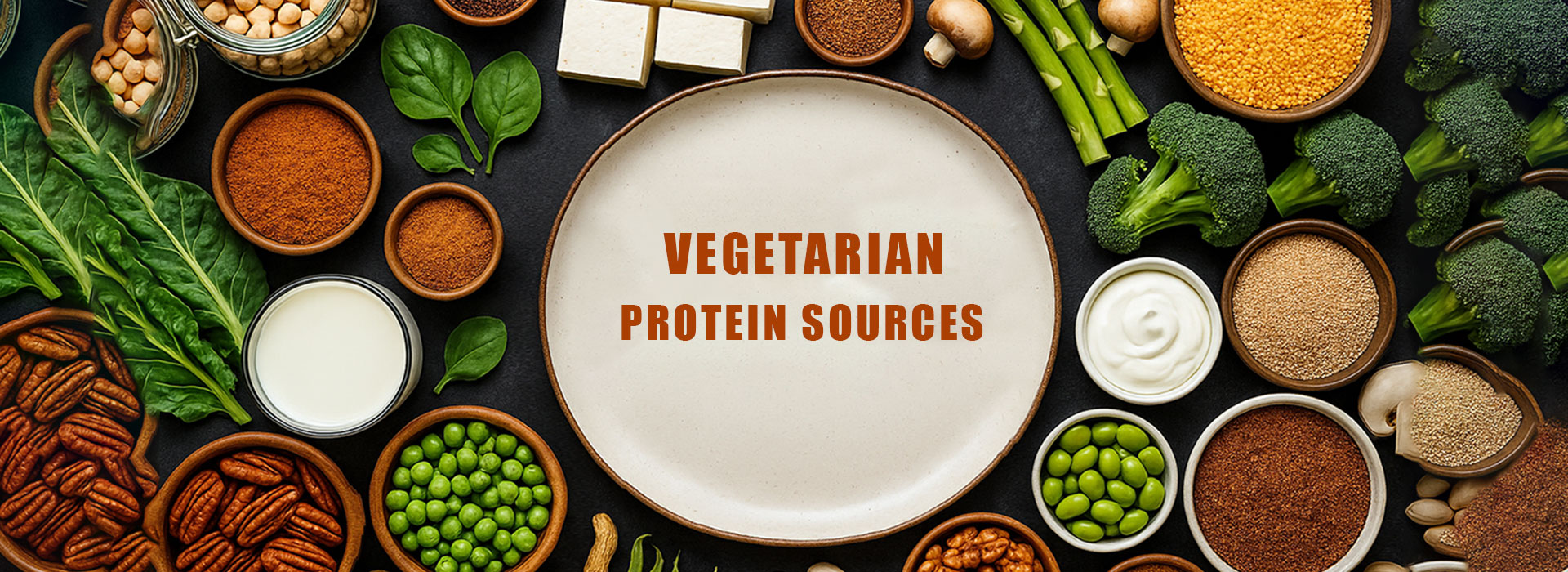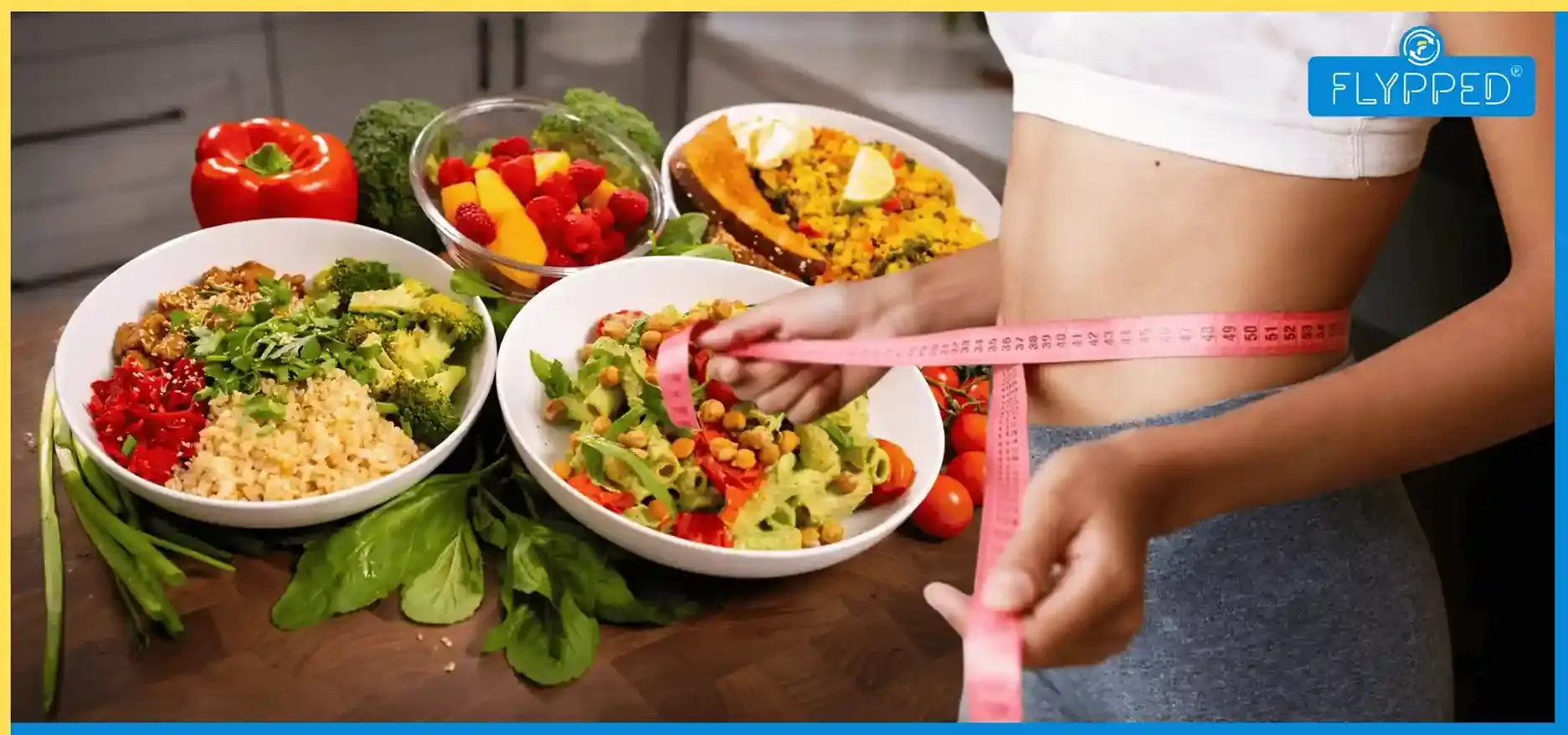Top 8 Protein Sources for Vegetarians: Your Plant-Powered Nutrition Manual

Gone are the days when vegetarians had to sheepishly answer the age-old question, "But where do you get your protein?" The plant kingdom is brimming with protein-rich treasures that not only meet your nutritional needs but also often surpass animal sources in terms of fibre, vitamins, and minerals.
Whether you're a lifelong vegetarian, exploring plant-based eating, or simply looking to diversify your protein intake, this guide will equip you with everything you need to build strong, healthy meals around vegetarian protein sources.
Why Protein Matters and the Power of Plant-Based Sources
Protein is essential for nearly every function in the human body. It’s the structural foundation of muscles, skin, hair, and nails and plays a vital role in producing enzymes and hormones that regulate everything from digestion to mood.
Beyond its biological functions, protein also helps stabilise blood sugar levels, promotes satiety, and supports tissue repair which is especially important after physical activity.
For vegetarians, getting enough protein isn’t just possible; it’s powerful. With the right mix of foods, you can meet your nutritional needs while enjoying a diverse and flavourful diet.
Top 8 Vegetarian Protein Sources
Lentils: The Ultimate Plant-Based Protein Powerhouse
Lentils are protein superstars, delivering an impressive 18 grams of protein per cooked cup. These versatile legumes shine when paired with whole grains like rice, quinoa or a whole wheat chapati, creating complete amino acid profiles.
To maximize absorption, cook lentils with vitamin C-rich foods like tomatoes, bell peppers, or lemon juice, which helps your body absorb the iron content. Red lentils work beautifully in curries and soups, while green and black varieties hold their shape well in salads and grain bowls.
Beans and Chickpeas: Classic Vegetarian Protein Sources
Beans and chickpeas provide approximately 15 grams of protein per cooked cup and form the backbone of countless vegetarian meals.
Chickpeas transform into creamy hummus when blended with tahini, creating a complete protein that's perfect with whole grain bread or vegetables.
Black beans paired with brown rice, more commonly known as rajma curry paired with rice, creates a classic complete protein combination.
Soaking dried beans overnight can improve digestibility and reduce gas-causing compounds.
Tofu: A Complete Soy Protein for Every Meal
Tofu offers about 20 grams of complete protein per cup and stands out as one of the few plant foods containing all essential amino acids. Made from soybeans, tofu absorbs flavour beautifully when marinated and can be grilled, scrambled, or blended into smoothies.
For maximum protein absorption, pair tofu with foods rich in vitamin B6, like potatoes or bananas. Pressing tofu before cooking removes excess water and creates a firmer texture that holds up better in stir-fries and curries.
Paneer: High-Protein Indian Favorite for Muscle Growth
Paneer delivers approximately 28 grams of complete protein per cup, making it one of the highest-protein vegetarian foods available. Paneer can be used in a number of versatile ways, making a curry out of it, scrambling it with some vegetables, or adding it to salads to increase the nutrient profile.
To maximise protein utilization, combine paneer with complex carbohydrates like whole wheat rotis or brown rice.
Yogurt and Curd: Protein and Probiotics for Better Digestion
Yogurt and Curd provide around 20 grams of complete protein per cup while delivering beneficial probiotics for digestive health. Greek yogurt contains even more protein, with some varieties offering up to 25 grams per cup. The probiotics in yogurt and curd actually help improve protein digestion and absorption.
Pair the yogurt with nuts, seeds, and fresh fruits for a filling and nutrient-rich breakfast. Homemade curd can be used to make cooling raitas or buttermilk to make your meals even more protein rich.
Soya Chunks: The Most Concentrated Vegetarian Protein Source
Soya Chunks pack an incredible 52 grams of protein per 100 grams of dried product, making them one of the most concentrated vegetarian protein sources available. These dehydrated soy nuggets need to be rehydrated in hot water before cooking and readily absorb spices and flavour.
Combine soya chunks with vegetables and whole grains for complete nutrition, and always cook them thoroughly with spices like turmeric and ginger to improve digestibility. They work excellently in curries, biryanis, and even protein-rich kebabs.
Nuts and Seeds: Protein-Rich Snacks Loaded with Healthy Fats
Nuts and Seeds offer varying amounts of protein while providing healthy fats and minerals essential for protein metabolism. Peanuts provide about 26 grams per cup, almonds offer 20 grams, while chia seeds pack 12 grams of protein per quarter cup.
Pumpkin seeds deliver 12 grams per quarter cup along with zinc, which is crucial for protein synthesis. Flax seeds contribute 8 grams per quarter cup plus omega-3 fatty acids.
To maximize absorption, soak nuts and seeds overnight, and pair them with vitamin C sources. Ground flax and chia seeds are more easily absorbed than whole seeds.
Amaranth: A Complete Protein Grain Packed with Nutrients
Amaranth provides 9 grams of complete protein per cooked cup and stands out as one of the few grains containing all essential amino acids. It can be cooked like rice, popped like popcorn, or ground into flour for baking.
Amaranth pairs beautifully with legumes and vegetables, creating nutrient-dense meals that support protein utilization.
Building Your Protein-Powered Future
Eating enough protein is essential for your physical, mental, and emotional well-being. It fuels your body to perform at its best, keeps you feeling full and satisfied, and helps maintain focus and energy throughout the day. A well-fed body is a well-functioning mind, and that starts with nourishing meals.
The beauty of a vegetarian diet lies in its variety, especially in Indian cuisine, which offers countless protein-rich ingredients that are both flavourful and wholesome. By embracing these plant-powered sources, you're not only supporting your health but also making a positive impact on the planet.
Start small; try adding one or two new protein-rich foods to your weekly meals. Over time, you’ll build a vibrant, diverse menu that satisfies your taste buds and meets your nutritional needs.
With the right mix of ingredients and a little creativity, your vegetarian plate can be just as protein-packed and energizing as any other. Your body, your mind, and your environment will thank you.
Click to read the full article



